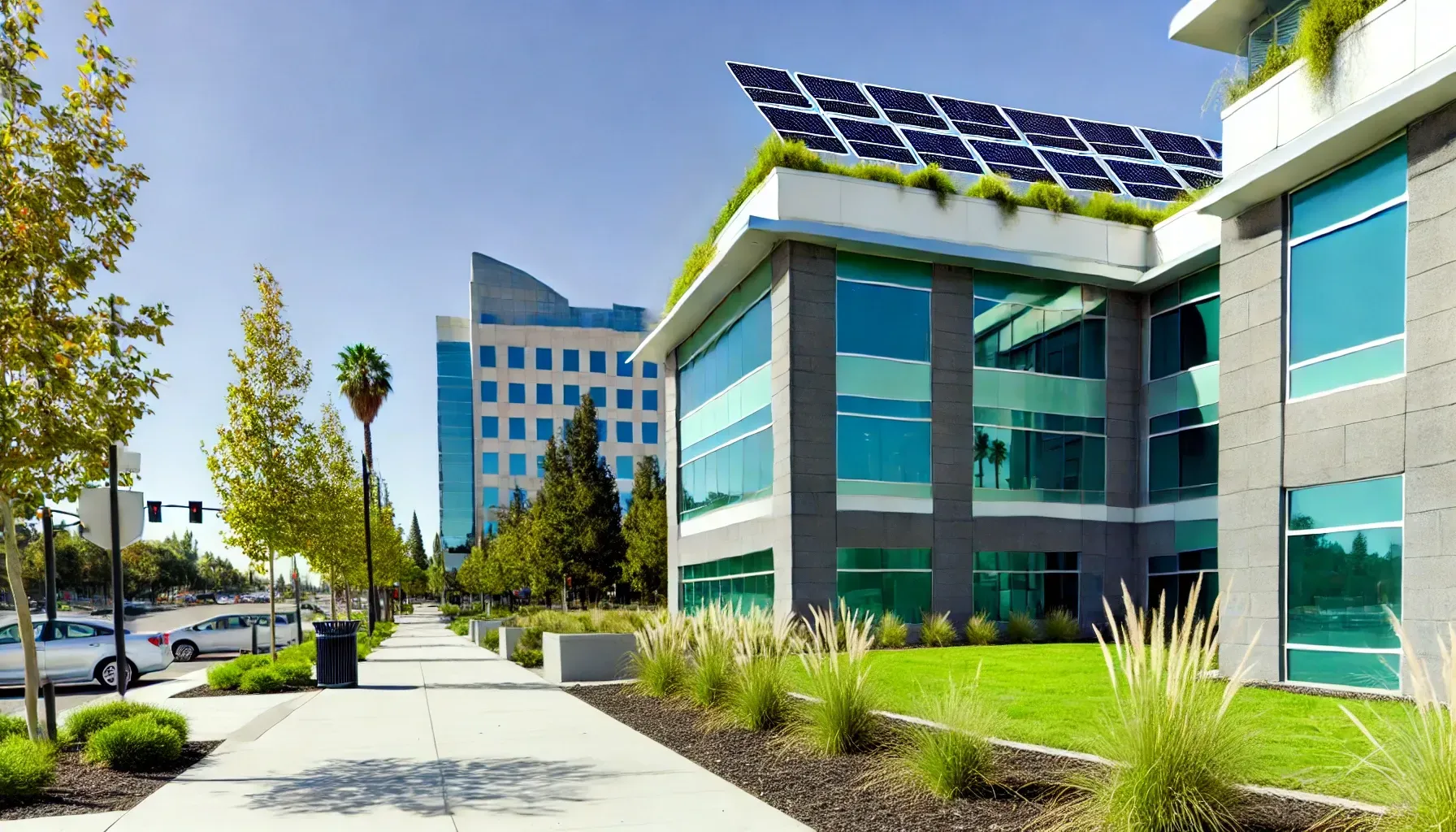Top Commercial Real Estate Trends to Watch in 2025
Changing consumer behavior, adapting quickly to economic shifts, and advancements in technology, the commercial real estate (CRE) market is changing quickly. Stakeholders will need to be way more agile in 2025 to capitalize on new opportunities. Below are the trends that will have a major impact this year.

Hybrid Workspace Growth
The hybrid work model, which became popular during the pandemic, is now a permanent fixture in most industries. Office space demand is shifting due to this. Companies increasingly seek leasing options that are mo flexible allowing them to scale their office space up or down based on needs in the workforce. Adaptable solutions are now being provided by coworking spaces for businesses prioritizing agility and thriving simultaneously.
Tenants are also requesting more from their office environments. Services such as wellness facilities, green spaces, and advanced technology integration are becoming top features. Employees value spaces that create productivity, making amenities a critical differentiator in the CRE market.
Sustainability Takes Center Stage
In the CRE industry sustainability has moved from a trend to a main strategy. Tenants and investors are making eco-conscious properties a priority and aligning with their environmental goals. Buildings that are energy-efficient including solar panels, HVAC systems, and LED lighting are highly desirable, as they not only minimize operating costs but also appeal to tenants who believe in sustainability.
Green certifications, such as LEED and WELL, are becoming more than a bonus—they’re a necessity. Properties with these certifications enjoy higher occupancy rates and rental premiums. Developers are also committing to net-zero carbon emissions, utilizing renewable energy sources and sustainable materials in their projects. In 2025, s
The Era of Smart Buildings
Smart buildings are no longer a futuristic concept—they are a necessity in the modern CRE landscape. IoT (Internet of Things) devices are transforming property management by enabling real-time monitoring of energy usage, security systems, and maintenance needs. These advancements improve operational efficiency and enhance tenant satisfaction.
The rise of PropTech (property technology) is also revolutionizing how CRE stakeholders operate. From virtual tours to AI-driven market insights, technology is making it easier to manage properties and attract tenants. Furthermore, data-driven decision-making is helping landlords and investors identify trends, predict market changes, and optimize asset performance. In 2025, embracing smart technology will be a key competitive advantage.
Transformation in Retail Real Estate
The retail real estate sector is progressing as it responds to the rise of e-commerce and changes in consumer preferences. Traditional retail spaces are being reimagined as experiential hubs. Brands focus on engaging experiences and creating interactive that draw customers into physical stores. These spaces often serve as showrooms, complementing online sales rather than competing.
Another trend worthy of attention is the integration of retail into mixed-use developments. Combining shopping, dining, residential, and office spaces creates lively, multifunctional hubs that cater to modern consumer lifestyles. In addition, the demand for last-mile logistics facilities, such as urban warehouses, is surging as e-commerce companies seek to improve delivery times. Retail real estate in 2025 will continue to adapt to the online era.
Adaptive Reuse Gaining Traction
Adaptive reuse is becoming an increasingly popular strategy for repurposing underutilized properties. Office-to-residential conversions are a key example, addressing high office vacancy rates while meeting the growing demand for housing. This trend is particularly evident in urban areas, where housing shortages are most acute.
Aging shopping malls are also being restored. Many are being transformed into mixed-use developments, healthcare facilities, or educational institutions. This approach not only breathes new life into stagnant properties but also minimizes environmental impact by reducing new construction. Adaptive reuse is an innovative solution for addressing shifting market demands while promoting sustainability.
Growth in Suburban CRE
As urban migration patterns shift, suburban areas are developing as hotspots for CRE growth. Many people are seeking more space and affordability in suburban locations, driving demand for retail, residential, and office developments. Businesses are responding by setting up satellite offices closer to where their employees live.
Suburban retail centers and multifamily housing developments are also on the rise, catering to growing populations. To support this expansion, investments in suburban transportation infrastructure are imperative. In 2025, the suburban CRE market will continue to grow as developers and investors recognize its potential.
The Expansion of Healthcare Real Estate
Healthcare real estate is a growing segment of the CRE market. The demand for outpatient clinics, senior living communities, and life sciences facilities is on the rise. The increase in telemedicine and outpatient services has reduced the need for large hospital complexes, shifting focus to smaller, specialized clinics.
Senior housing is another growth area, driven by the older population. Meanwhile, life sciences real estate, including laboratories and research facilities, is in high demand, particularly in cities with strong biotech industries. This trend is expected to continue in 2025 as healthcare needs evolve.
Diversification with Alternative Assets
Investors are exploring alternative CRE assets to diversify their portfolios. Data centers are among the most sought-after properties, fueled by the growth of cloud computing and digital services. Cold storage facilities are also in high demand, driven by the rise of online grocery shopping and the need for pharmaceutical storage.
The build-to-rent (BTR) sector is gaining momentum as institutional investors recognize its potential for stable income streams. These single-family rental properties offer lower risk compared to traditional multifamily investments. In 2025, alternative assets will be a main focus for forward-thinking investors.
Economic and Geopolitical Influences
The global economy and geopolitical landscape will continue to impact CRE in 2025. Rising interest rates may slow new developments, pushing investors to focus on stabilizing existing assets. Inflation concerns could hike up construction costs, though high-demand properties are likely to maintain premium rents.
Cross-border investments remain strong, with international investors seeking opportunities in stable markets. Despite geopolitical uncertainties, CRE offers a hedge against inflation and an attractive long-term investment. Staying attuned to these economic and geopolitical factors will be essential for CRE stakeholders.
Adapting to the Future of CRE
The commercial real estate market in 2025 promises both challenges and opportunities. Stakeholders who embrace flexibility, sustainability, and innovation will be well-positioned to thrive. From hybrid workspaces and adaptive reuse to technological advancements and climate resilience, the trends shaping CRE reflect the dynamic nature of the industry.






